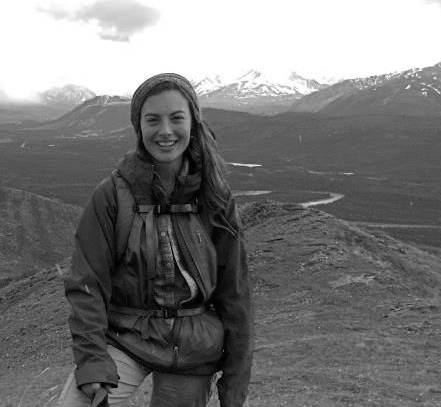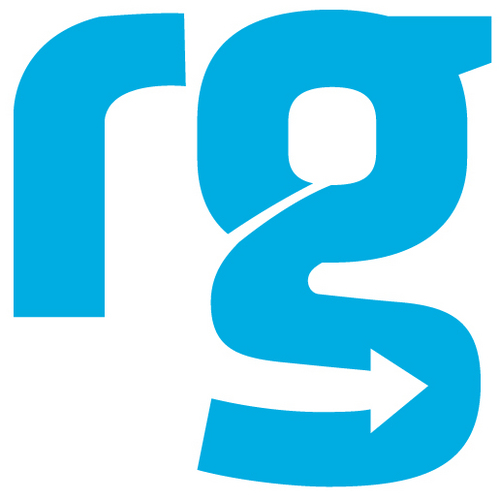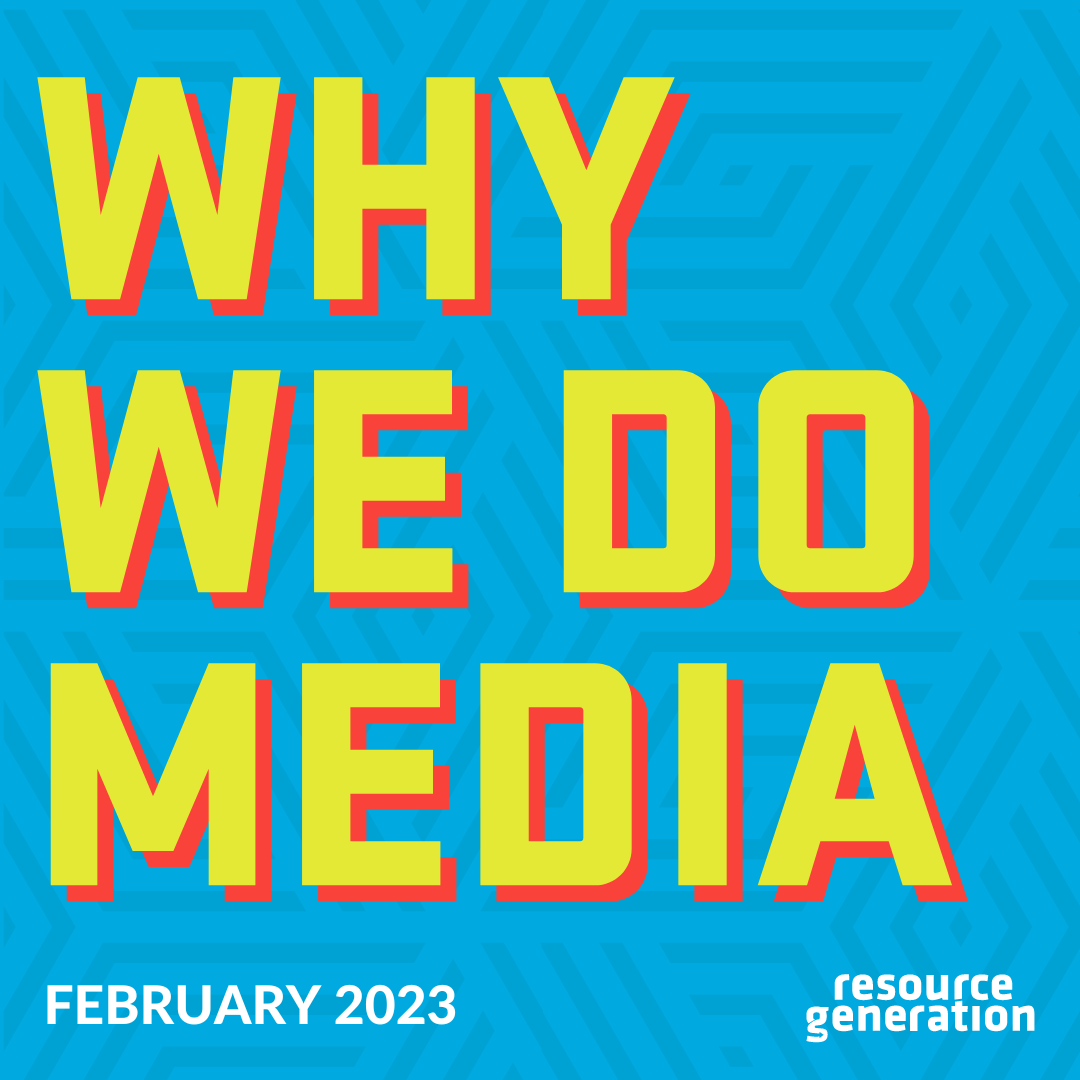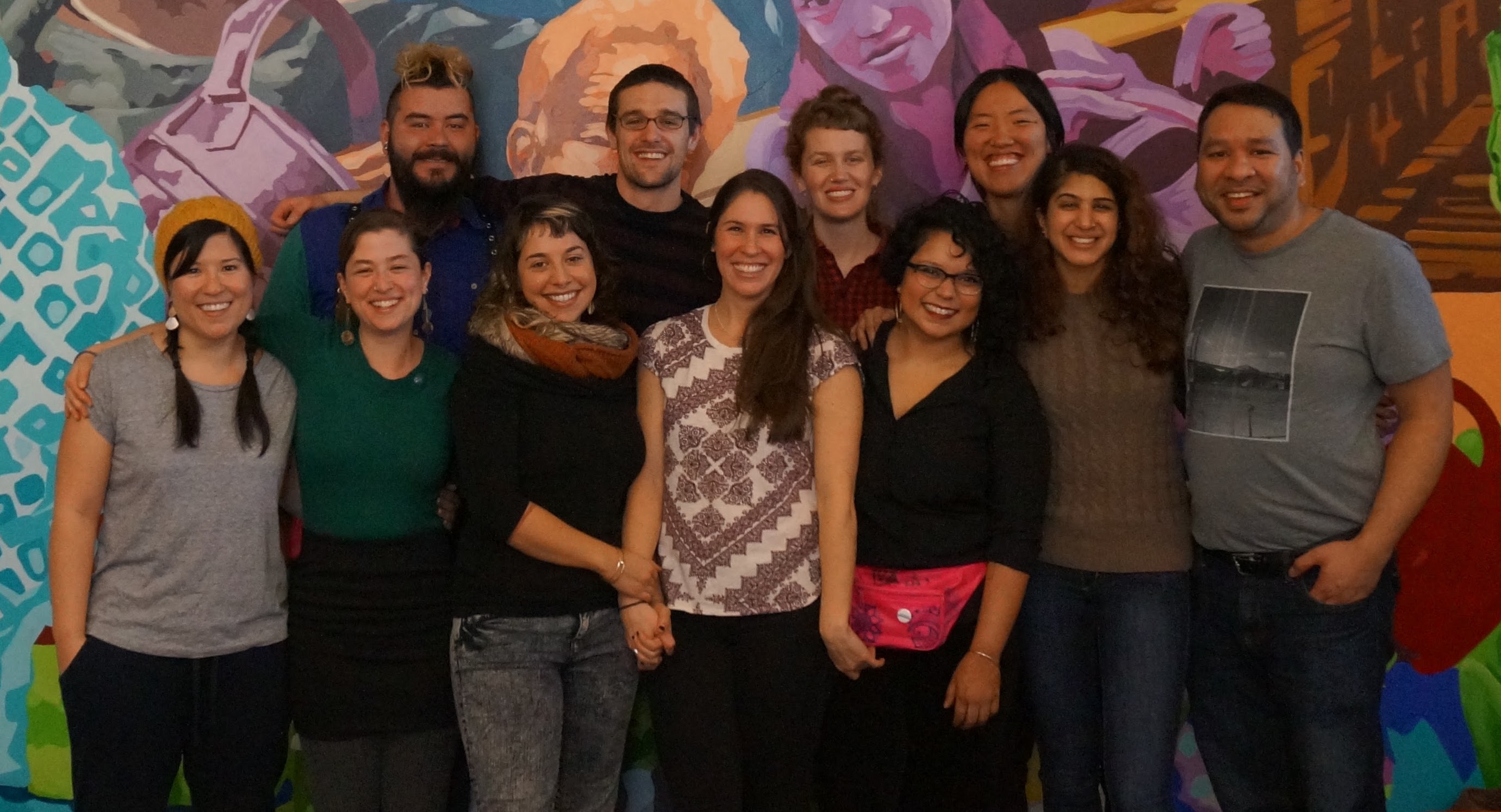By Margi,
My Mini Praxis Group with Aunts and Uncles
I grew up in an owning-class family and didn’t know it. My parents chose to live their daily lives within the means of their salaries, but subtly used inherited wealth to assist with big expenses like my education and buying our home. I was probably eight when I asked my mom what ‘class’ we were and I remember she said upper-middle-class. I grew up in Alaska knowing I was f
I didn’t realize my family was rich until my final years of high school. I started to put it together when:
- I realized how much more often my family traveled than my friends’ families (we travelled often both to see relatives scattered across the U.S. and to faraway countries);
- When I told my public school counsellor I was transferring to private boarding school on the other side of the country (she said the school sounded like a place her kids would like to go… then balked when she saw p
rice tag and informed me that’s more than many pay for college tuition); and - Perhaps most abruptly when I unwittingly ‘outed’ myself in front of my friends when, late in the process of college applications, I asked what FAFSA was.
I was mortified when I began to recognize hints of class privilege (that I knew others had noticed while I was oblivious), like my ability to choose to start working during summer breaks and the fact that my jobs were (and continue to be) decidedly low pay, but fun and enriching. I didn’t have to spend what I earned and my modest savings grew over the years. I remember my parents paying out of pocket for full price doctor visits. I remember feeling perplexed when my parents told me I didn’t need to apply for college scholarships. I remember deciding to take a gap year and awkwardly explaining to friends that no, it wasn’t so I could work and save up money. I remember stubbornly sticking to a budget during that gap year so I could pay my own way from my previous summer earnings.
I was still naive to the multi-generational transfer of wealth that enabled our financial ease, even though by that time my mom had gradually started sharing vague details about accounts and money I didn’t know I had. It wasn’t until after I graduated from college (not just debt-free, but without depleting my own funds because my grandparents paid my ivy-league tuition) that I asked for the full picture, became aware of my multi-million dollar inheritance and began managing all the accounts in my name. I was overwhelmed by the seemingly impossible task of reconciling my financial reality with my identity and values, and I realized I needed to learn how to manage my wealth to actively pursue the priorities and vision that guide my endeavors in the rest of my life. I also realized how isolated I was that I needed to process my thoughts and questions about money with a community.
I also knew I needed to talk to other people who had similar experiences. This need for role models and answers to my countless questions is what finally compelled me to break my family’s silence. I also fortuitously discovered RG around this time, thanks to an article in the New York Times that my now-father-in-law, a retired investment banker, who I’d been barraging with questions about philanthropy and Socially Responsible Investing (SRI), clipped for me. The article was published in March 2013, he gave it to me in September, and that November I attended MMMC and it changed my life.
I grew up in a
Our family members – from far-flung corners of the country – met for ninety-minutes, once a month, via Google Hangouts. Since we’d never really talked about money before, our first topic was “how are/aren’t you open about your financial situation (to self, family, friends)?” Most of my family members talked about the importance of discretion and their reluctance to reveal anything about their financial lives to acquaintances and even close friends; some talked about negative experiences loaning friends money; no one had positive examples of being open about money. Over the following
Many of you probably have more technologically savvy families that FaceTime regularly, but for
These four sessions laid a foundation for continued conversations about money. I recently organized a phone call for interested family members with my financial advisor who specializes in Environmental Social and Governance (ESG) criteria to evaluate investments impacts beyond monetary profit. I shared how I appreciated her detailed questionnaire that covered my social and environmental values, along with my financial priorities, the difference between positive and negative screens, and how easy it was for me to divest from fossil fuels without “hobbling” my portfolio like my previous advisor (who many of my family members still invest with) thought it would. I hope some of my family members will switch advisors, but at the very least I know that my former advisor is getting a strong message.
I am fortunate to have a family that enjoys each other’s company, that is politically aligned, and is open to having tough conversations. But even so, I didn’t push my agenda during the initial dialogues and instead used the time to listen and share my experiences. I certainly aspired to dive deeper, but I’m working on being patient…I look forward to the day when we will dig deep into discussing the process and criteria of social justice philanthropy and applying critical analyses to our current giving practices. As part of the most recent Family Philanthropy webinar, I set a goal to share some resources about social justice philanthropy with my extended family members this year. I think we are due for another round of monthly conversations.
Family dynamics can be really tough, but there are also wonderful moments of affirmation.
On a recent phone call, my grandmother made an offhand comment about how I’ve become a go-to person if someone in the family has a question about money management. Her simple statement held great weight for me. I’ve been charting a very different course than my late grandfather established for our family, and I’m glad she doesn’t see me as challenging his legacy, but instead appreciates how I’m stepping up to fill a void.
EXAMPLE AGENDA
5:30 — Informal visiting
5:45 — Everyone gets signed in
6:00 — Check in 3 minutes each (this is timed)
- how’s life?
- anything you want to share that will help you be more present?
- how would you characterize your approach to philanthropy?
Discussion topic with 5 minute sharing by each person:
- What are your philanthropic philosophies?
- How has your approach changed at various stages in your life?
- What are the factors you consider and how does that inform your decision-making?
- Have you found any advisors or information sources to be useful?
- In what ways are they limited?
- What are your goals for your philanthropic ventures?
Open Discussion
Feedback
Confirm next sessions’ topics
Closing
After 7:00 — Optional hang out time
TOPICS OUTLINE
FEBRUARY – Openness (7 participants)
- Prompt: How are/aren’t you open about your financial situation (to self, family, friends)?
MAR – Spending (9 participants)
- Prompt:
- How do you spend money?
- What factors weigh into your spending decisions?
- How has this changed at various stages in your life?
- Highlights:
- Money we spend vs money we earn
- spending money on experiences like travel vs buying things
- Education, college
- Buying homes
- Being able to take jobs that don’t pay well, and donate our time
- Live below our means
- Raised in a tradition of philanthropy
APR – Investing (6 participants)
- Prompt:
- What are your investment philosophies?
- How has your approach changed at various stages in your life?
- What are the factors you consider (i.e., triple bottom line) and how does that inform your investment decision making?
- Have you found investment advisors to be useful?
- In what ways are they limited?
- What are your goals for your investments and have you used a risk questionnaire and/or a values questionnaire (see attached — materials I sent to our group in advance of the call) to help reach these goals?
MAY – Giving (5 participants)
- Prompt:
- What are your philanthropic philosophies?
- How has your approach changed at various stages in your life?
- What are the factors you consider and how does that inform your decision making?
- Have you found any advisors or information sources to be useful?
- In what ways are they limited?
- What are your goals for your philanthropic ventures?
- Emergent Questions:
- How much should/could I give each year?
- When do I want to be anonymous?
- How do I follow up on donations to measure success?
- How can I support social change philanthropy rather than perpetuate dependence?
—
Margi lives in Alaska. She first discovered RG and attended MMMC in 2013. She





Sharing this with my financial advisor! Thanks so much for sharing!